The earth has had a long and turbulent history. The universe was formed 12-15 billion years ago, while our Galaxy came into being around 4600 million years ago. The earth’s origin can also be traced back to that time. The earliest living beings were simple; it was not until 1000 million years at least from the formation of the earth that the earliest life forms began to emerge. The more complex life forms appeared yet another 2500 million years later. Here is a list of some of the weird prehistoric creatures.
10. Brachiosaurus
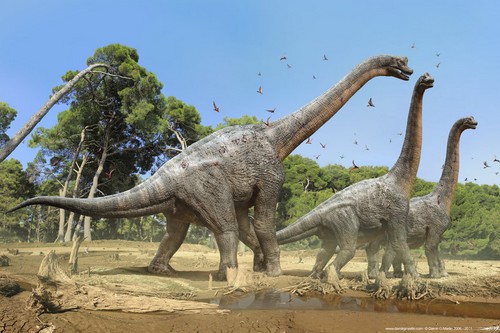
The largest dinosaur known today, this animal was as tall as a four storey building. Such a long neck had obviously developed to enable it to eat leaves from really tall trees of the Jurassic period of which it was a part. Other sauropods like the Diplodocus and Cetiosaurus were also very tall for the same reason.
9. Plateosaurus
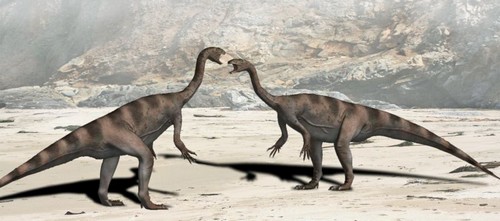
Early dinosaurs which descended from reptiles were of two types – the theropods or meat eaters and the sauropods or plant eaters. The Plateosaurus was a massive bodied sauropod that had the unique advantage of being able to walk on all four as well as its hind legs only, because they were muscular enough. Also, its front legs had claws which could have allowed it to break branches. Unfortunately, it could not chew its food and hence had to swallow entire stones so that the plants in it could be digested!
8. Mesosaurus
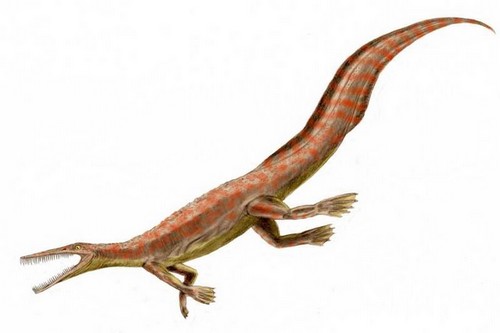
This animal is quite controversial among geologists and paleontologists alike. This is because from the kind of rock on which its fossil was found, it would seem that this animal was a reptile. About 270 million old, this creature was mostly presumed to be an animal that used to lay eggs in water but lived on land. However, other scientists have argued that this creature may actually have been some kind of lizard that could also adapt itself to a wide range of aquatic scenarios.
7. Ichthyostega
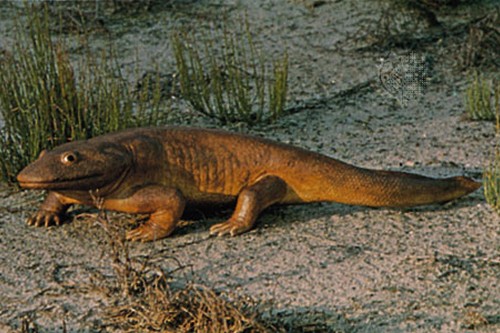
It must be remembered that during the Carboniferous period, the seas were teaming with life, particularly sharks and creatures like the Stethacanthus that had a strange, tooth-covered protrusion on its head. Lands like Greenland which are today polar lands were during the Carboniferous period tropic zones. This meant that a vast diversity of life was to be seen in these places. The Ichthyostega was an amphibian that from its appearance, especially its head and tail, looked exactly like a fish. This was because it used to lay its jelly covered eggs in water.
6. Eusthenopteron
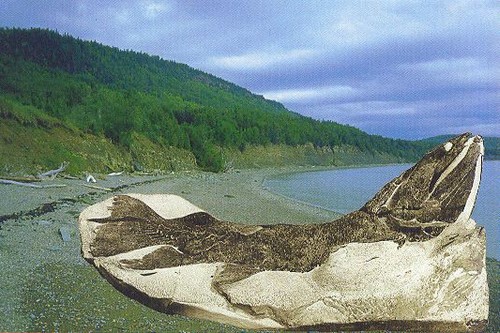
Some of the earliest land animals happened to be spiders and insects. This is because they were anthropods. This gave the binary advantage. On one hand, their jointed legs allowed them to easily move over uneven land. On the other, they could remain out of water without getting dehydrated because of external skeletons. However, there were lobefins like the Eusthenopteron, fish which remained close to the water that could start coming on land. They were the earliest ancestors of the amphibians. In pursuit of prey, they would often come close to the land near the water and slowly they learned to push themselves on land.
5. Pikaia
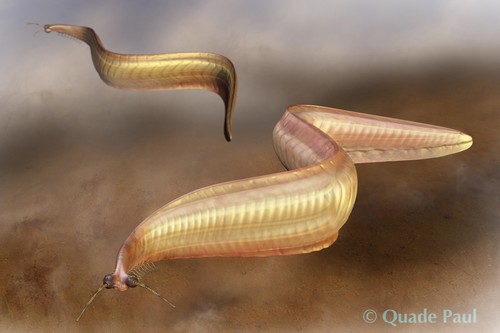
This animal was named after the nearby Mt. Pika. Although it looked like a worm, it had a stiff rod that ran through the length of its body. Despite not being a backbone, scientists think that this was similar to one. This has led them to think that this animal may have been one of the earliest ancestors of the vertebrates.
4. Arandapsis
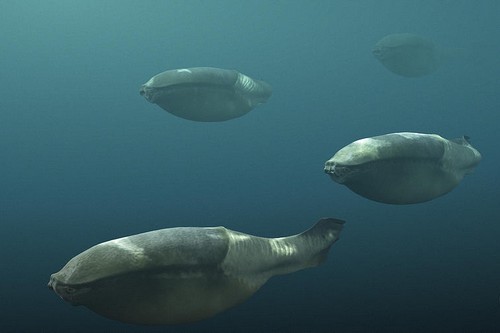
One of the earliest known fishes, Arandapsis was one of those creatures which were jawless but had gills to enable an aquatic existence. It had a hard armor like body to protect it from predatory animals like eurypterids. Some of these fish were up to two meters in length. Such fish had reigned supreme in the seas for nearly 130 million years. They were most likely descendents of the Pikaia.
3. Opabinia
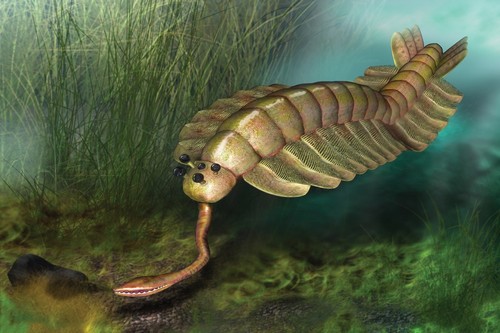
If Hallucigenia had multiple stilts, this living thing had as many as five eyes. It could also catch fish using a long nozzle. This creature might have uncanny similarities with some of the bad alien fellers in some Hollywood action movie!
2. Hallucigenia
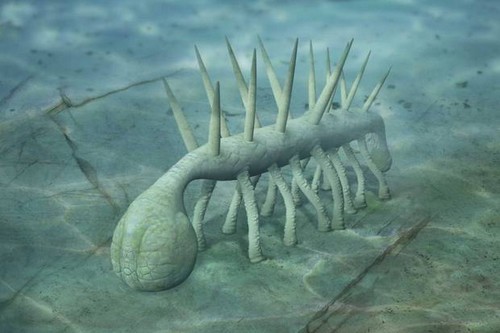
Instead of swimming, this creature used to roam about on the sea bed on seven pairs of stilts, giving it a very scary appearance. To add to these stilts, the creature even had spines on its back as a form of defense mechanism.


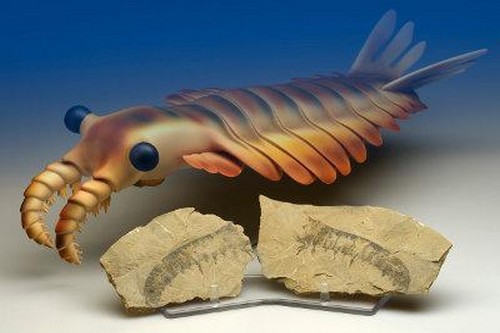

0 comments:
Post a Comment